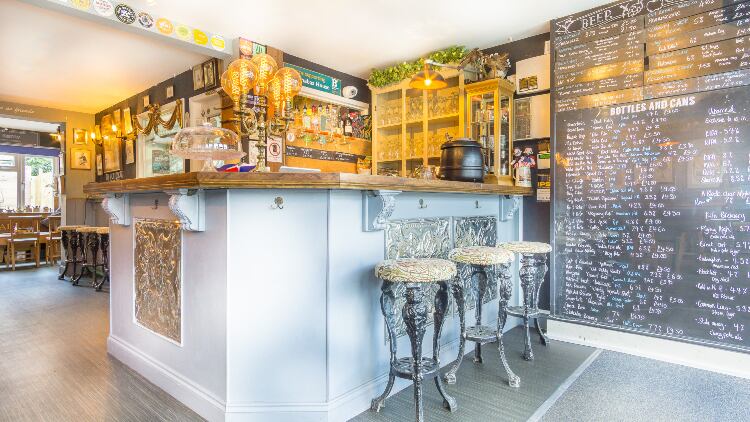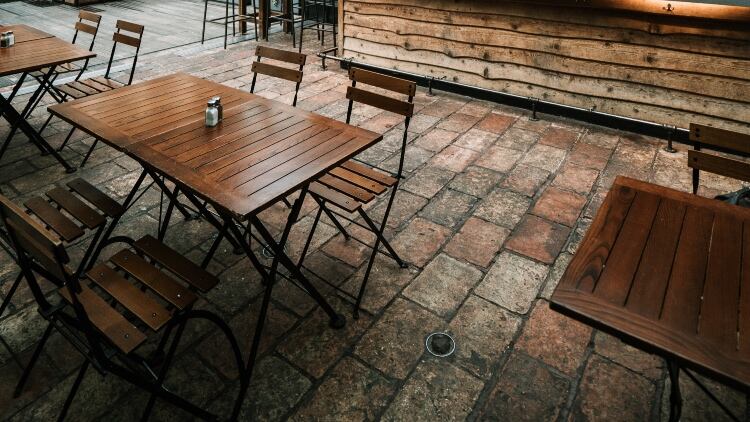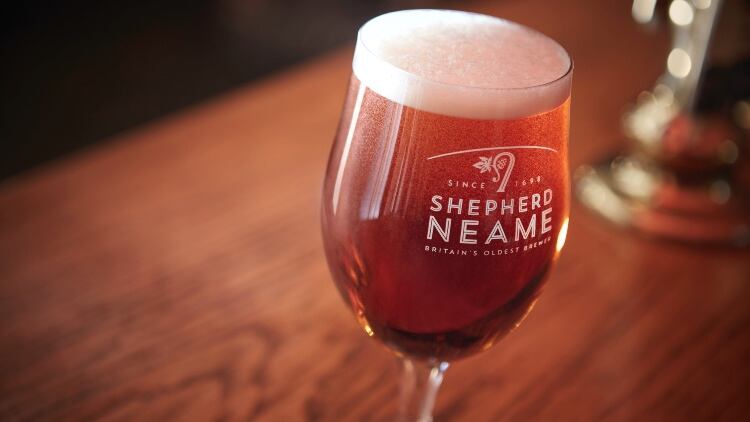Many food-focused sites have reported booming sales thanks to the Government’s Eat Out to Help Out discount meals scheme, with diners enticed by a 50% discount - up to a maximum of £10 per person - every Monday, Tuesday and Wednesday on food and non-alcoholic drinks that are ordered to eat or drink in.
What’s more, a survey by Streetbees found of the respondents who had dined out on Chancellor Rishi Sunak’s Eat Out to Help Out scheme, almost two thirds (60%) wouldn’t have done so had it not been for the 50% discount.
Wet-led pubs have, however, faced a trickier summer. Punters have been slow to venture out again and social distancing requirements mean many sites are struggling to break even.
Publicans told The Morning Advertiser they are worried about the hard decisions ahead when the Government’s Coronavirus Job Retention Scheme wraps up come November.
Some 43% of those surveyed in the British Institute of Innkeeping’s (BII) last membership survey reported food sales accounting for less than 20% of their turnover, with half not serving food at all.
Trade has dipped
One pub operator who has not seen a direct impact from the discount scheme but is confident there may be a ‘trickle down’ impact on consumer confidence is Aaron Burns, owner of the Brooksteed Alehouse, Worthing, East Sussex.
The site (pictured) was shortlisted for the Best for Beer title in the Great British Pub Awards 2019.
Burns explained: “Eat Out to Help Out hasn't really done much for us - in fact trade has dipped on the days it's on as people rightly take advantage of it.
“We have run a bit of social media encouraging people dining out to visit the great pubs and bars we have in Worthing to visit for a drink before or after to spread some of the love around.”
He added: “I do however think it's a great scheme and hopefully the discount lure has encouraged people to feel more confident about going out again, especially when they see that operators have taken proactive measures to keep them safe.”
The operator said he was worried about the end of the furlough scheme come autumn. “Trade is down and for social distancing we've reduced our capacity and the flexible scheme has allowed us to retain the team,” Burns said.
Slash VAT
“I think what would really help moving forward is a VAT reduction for the hospitality trade to keep us propped until things normalise a little more,” Burns added.
He is not alone in holding this view.
The British Beer & Pub Association is calling on the Government to cut VAT on beer served in pubs.
Emma McClarkin, chief executive of the BBPA, is advocating an extension of the Eat Out to Help Out Scheme and believes it has helped to secure jobs and consumer confidence but wants to see more done.
She said: “However, it still remains the case that ‘wet led’ pubs – those who predominantly just serve drinks and bar snacks – don’t benefit from the Scheme and so still need further support from the Government elsewhere. With the upcoming Autumn Budget and Alcohol Duty Review, as well as the Business Rates Review, this should be in the form of significant cuts to Beer Duty and Business Rates.”
This follows the Chancellor’s decision to reduce the rate of VAT on “most hospitality related activities” from 20% to 5% until 12 Januatry 2021. The decision did not include alcoholic drinks, causing some community operators to report feeling neglected and disappointed.
What’s more, 71% of the BII’s members said they would like to see a VAT reduction for a whole year.
Safety promoted
Ed Mason, managing director and co-founder of Five Points, an East-London brewery and taproom, agrees that the discount scheme was helpful for boosting confidence among consumers.
He explained: “While EOTHO has been incredibly helpful at driving midweek trade and encouraging customers to come back to venues again and to experience and realise that this can be done in a safe environment, the trade has been very much around food.”
The taproom has experienced a “natural boost” in drink sales accompanying its discount pizza sales. However, it has been a “relatively modest” increase given the early/mid week days the scheme is running on, “when many people do not drink at all or drink modestly,” Mason explained. Similarly, the business has not experienced much uplift on soft drink sales.
Rent calls
Mason is concerned about commercial rent moving forward, with the business having been expected to pay full rent during the lockdown period despite taking in no income.
“We believe that the government could and should have embraced the ‘Time Out’ campaign that has earned enormous support across the whole hospitality industry,” the co-founder said.
“Both tenants and landlords have been crying out for support and clarity, and policies such as those proposed by the Time Out campaign would have supported the whole sector fairly.”
The business was dealt a bitter blow when it discovered it was among thousands excluded from the Government’s Retail, Hospitality and Leisure Grant Fund (RHLGF) because of its rateable value.
Pandemic disaster
“We felt that the Rateable Value cap of £51,000 was arbitrary and should have been set at a higher level, or the cap removed altogether,” Mason said. “There were many businesses, ours included, who just missed out on the grant, and the grant would have proved invaluable in allowing us to sustain the losses we have seen during lockdown.”
However, he is thankful for the furlough scheme and the cancellation of business rates.
“JRS allowed us to place all of our staff on furlough during lockdown, ensuring that we saved jobs, and that we were in a position to re-open with existing, experienced staff as soon as the easing of lockdown began on 4 July.
“The waiving of business rates for 20/21 has helped ease the burden of business costs and overheads as we try and trade out of the disaster that has been Covid.”




